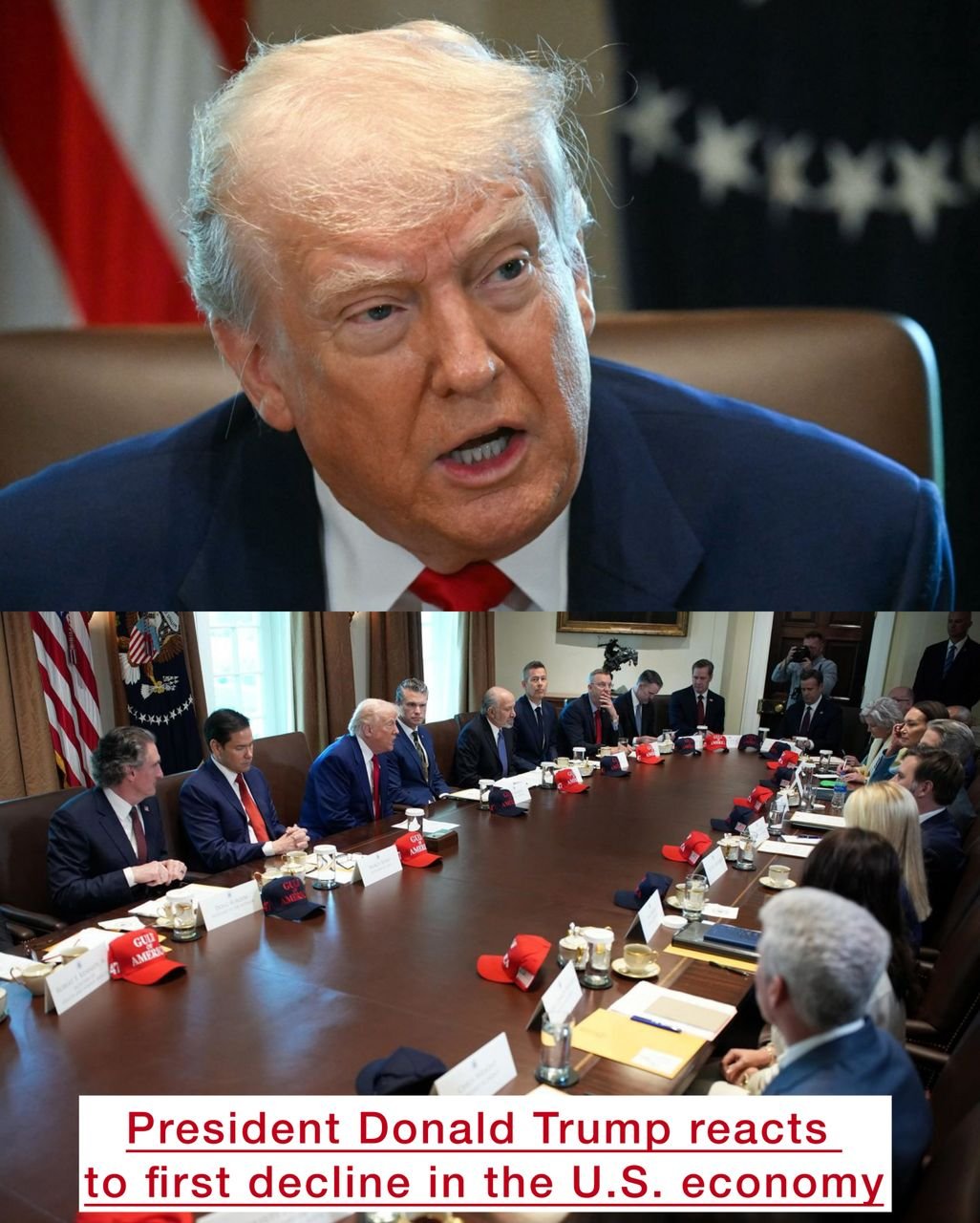President Donald Trump exhorted patience following the release of a new report that revealed the first decline in the U.S. economy in three years. He attributed the decline to his predecessor and predicted that his new tariffs would result in a boom “unlike any other.”
The Commerce Department reported on April 30 that the value of all goods and services in the United States, which is known as the gross domestic product, decreased by 0.3% annually in the first three months of the year. This is a decrease from the 2.4% increase that occurred at the conclusion of the previous year.
The initial quarter encompasses the initial three months of the year, during which former President Joe Biden served as the leader for the first three weeks. Biden’s final complete day in office occurred on January 19. The report also examines a period during which the economy and stock market experienced volatility as a result of Trump’s tariff policies.
Trump, one day after reaching 100 days in the White House, attributed the tariff-induced economic downturn in the first three months of the year to his predecessor, referring to it as the “Biden Overhang.” This accusation was made in light of the fact that the Republican’s economic policies have produced additional alarming indicators.

In response to the most recent economic data from the United States, stocks experienced a decline. This prompted President Trump to assign responsibility for the decline to former President Joe Biden in a morning Truth Social post: “This is Biden’s Stock Market, not Trump’s,” the president wrote. “I did not assume responsibility until January 20th.”
Businesses imported an extensive quantity of products prior to the implementation of Trump’s tariffs, which resulted in an increase in the U.S. trade deficit and a reduction in growth. The underlying economy demonstrated a strong performance in the first quarter, despite the fact that consumer confidence was in decline and business uncertainty regarding import fees was on the rise. However, the tariff effects were excluded.
The United States’ stocks experienced their most severe session since 2020 on April 2, the day after President Trump announced his comprehensive tariffs on dozens of countries. These tariffs included a universal 10% tariff and higher tariffs on commodities from specific countries. The day following Trump’s tariff program, which was designed to increase U.S. manufacturing by compelling companies to manufacture their products in the United States, the stock market responded to retaliation warnings from around the world.
According to the University of Michigan Surveys of Consumers, U.S. consumer sentiment declined for the fourth consecutive month in April as Americans contemplate the potential impact of tariffs and trade tensions on their finances.
Trump presented his economic policies in a positive light on Truth Social and assured the voters who elected him in November that additional time is required to enhance the U.S. situation.
Donald Trump wrote, “Our nation will experience growth; however, we must eliminate the Biden “Overhang.” “This will require some time, and it is not related to tariffs; it is solely due to the fact that he provided us with subpar figures. However, the economic boom will be unparalleled.” Please exercise patience.
The nation’s trade deficit increased by $14 billion to a record $162 billion in March, as businesses increased shipments in anticipation of tariffs, and goods imports increased at an annual rate of 50.9% during the first three months of the year. In summary, the economic growth was reduced by approximately 5 percentage points as a result of the widening trade deficit in the first quarter.
Peter Navarro, the White House trade adviser, stated that the increase in imports was an anomaly caused by tit-for-tat tariffs. He anticipates that this anomaly will be rectified in the upcoming quarter and will contribute to economic development.
“What transpired today was a fairly extraordinary surge in imports that was entirely the result of the rest of the world attempting to import their products before the tariffs were fully implemented,” Navarro informed reporters at the White House, referring to it as a “one-shot” transaction.
Navarro stated that the tax bill that Republicans in Congress are currently attempting to enact would also encourage domestic investment by providing a 100% expensing for equipment and buildings in the United States.
Leave a Reply